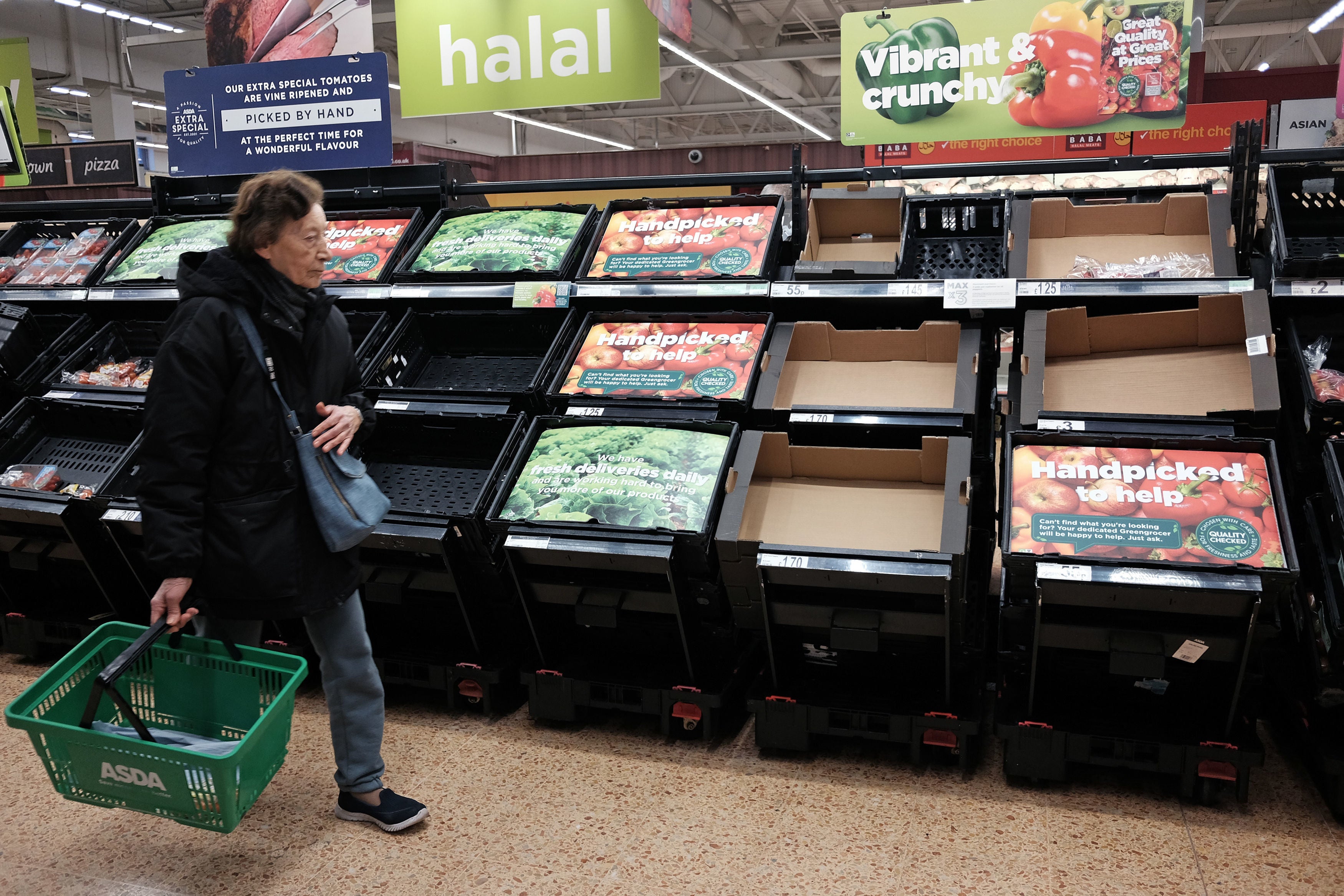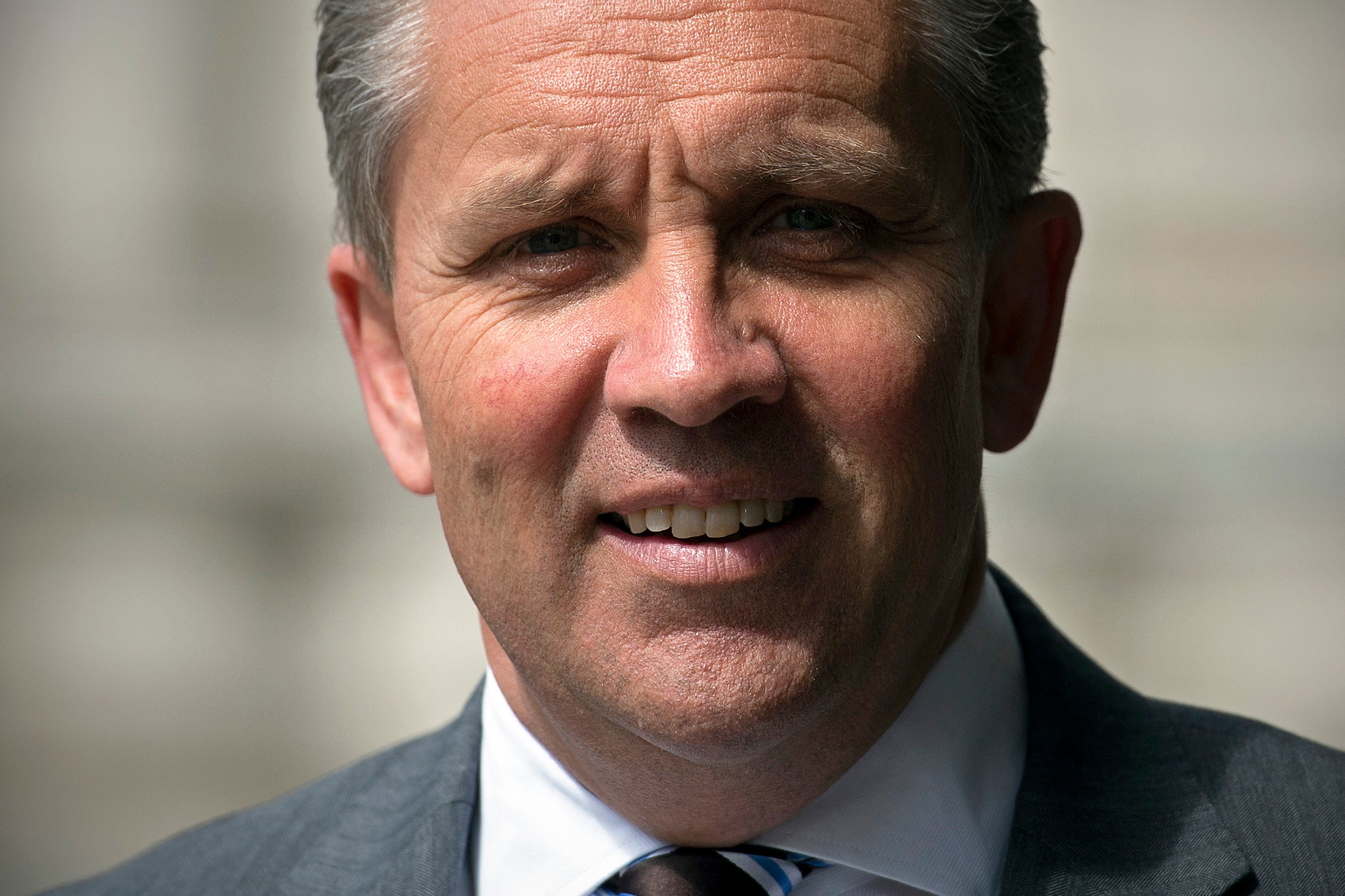Ex Sainsbury’s boss blames energy costs and Brexit as supermarkets ration fruit and veg
Blame game has begun as Morrison’s and Asda are rationing number of products amid soaring food prices
Your support helps us to tell the story
From reproductive rights to climate change to Big Tech, The Independent is on the ground when the story is developing. Whether it's investigating the financials of Elon Musk's pro-Trump PAC or producing our latest documentary, 'The A Word', which shines a light on the American women fighting for reproductive rights, we know how important it is to parse out the facts from the messaging.
At such a critical moment in US history, we need reporters on the ground. Your donation allows us to keep sending journalists to speak to both sides of the story.
The Independent is trusted by Americans across the entire political spectrum. And unlike many other quality news outlets, we choose not to lock Americans out of our reporting and analysis with paywalls. We believe quality journalism should be available to everyone, paid for by those who can afford it.
Your support makes all the difference.Supermarket food rationing has been blamed on a lack of government support on energy bills and Brexit by a former Sainsbury’s boss.
Morrison’s and Asda this week announced they are limiting customers to only three items each on a number of products including salad bags, lettuce and raspberries. Supermarkets have said bad weather in southern Europe and north Africa has led to the shortages.
But Justin King, previously Sainsbury’s CEO, said a number of issues had led to the situation, including a decline in UK greenhouses that grow such everyday products, and criticised the government for failing to include supermarkets in its energy support scheme.

“These are products that we do produce, or at least have produced all year round in the UK,” Mr King told LBC. “In north Kent, in Thanet, [there are] the largest greenhouses in Europe, which used to be full of cucumbers, peppers, and tomatoes. Sainsbury’s used to have year-round British tomatoes.
“But those greenhouses have suffered, really, from two big things. It’s a sector that’s been hurt horribly by Brexit but by far the biggest issue for that sector has been the government chose [sic] not to make it part of this energy support package this week.
“Without the support on energy, it’s not been economically viable to produce under glass this winter in the UK.”
It isn’t the first time Mr King has criticised the impact of Brexit, predicting back in 2017 it would lead to “higher prices, less choice and poorer quality”.
And in 2021 he warned “in two years’ time you are all going to realise Brexit was bigger news than Covid” when it came to the impact on the food industry.
So far, the majority of supermarket chains have yet to take similar actions to restrict items sold to customers.
Waitrose, The Co-operative, Lidl, Tesco, Sainsbury’s and Ocado have all confirmed that they are not rationing food items, though they are monitoring the situation.
In a speech to the National Farmers’ Union on Wednesday, environment secretary Therese Coffey blamed the weather in Spain for the shortages adding that was ‘not something we can control’.

While an Asda spokesperson said bad weather in north Africa had led to issues, the chair of campaign group Save British Food argued Brexit was ultimately to blame, with other factors making it worse.
“I keep hearing that Spain is being blamed for the food shortages in Britain and this is absolute nonsense,” Liz Webster said.
“The reason we have food shortages in Britain - and they don’t have food shortages in Spain or anywhere else in the EU - is because of Brexit and because of this disastrous Conservative government that have no interest in food production or farming or even food supply,” . “That’s why we are in this mess.
“The Conservatives with their Brexit have messed up our trade and made that very difficult.
“This has also impacted the labour supply as it ended freedom of movement. It has also removed the cap and food subsidies, then add on top of that the Ukraine war and Covid and all of the inflation
“All of this was predicted and predictable.”
The head of the farming campaign said the government had been warned that they needed to act by taking measures such as funding farmers to “ramp up” domestic production to compensate for the loss of trade with Europe.
“Now it’s too late to do anything,” she added. “The only option now to cure the food shortage problem is to make sure we get back in the single market and customs union as quickly as possible. That is the only quick fix open now.”
The Department for Environment, Food and Rural Affairs has been approached for comment.



Join our commenting forum
Join thought-provoking conversations, follow other Independent readers and see their replies
Comments